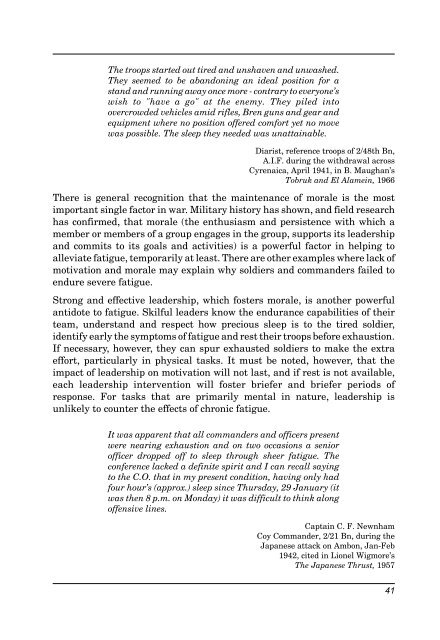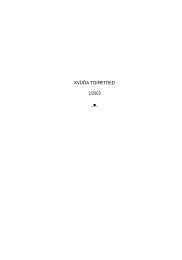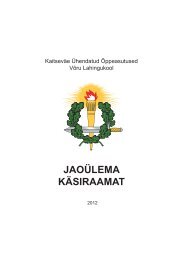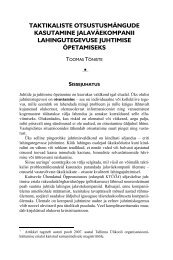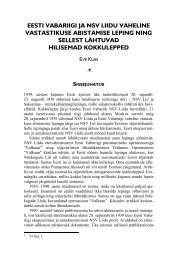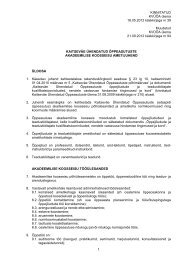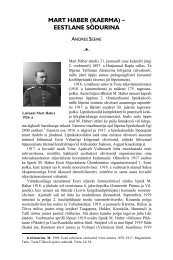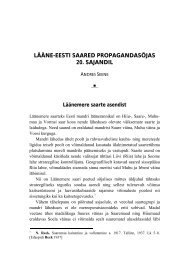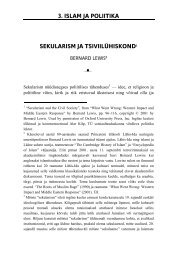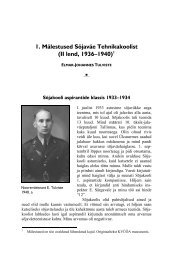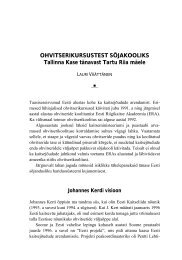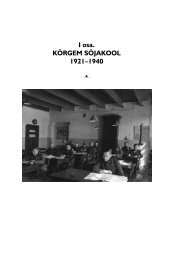Fatigue Management
Fatigue Management
Fatigue Management
You also want an ePaper? Increase the reach of your titles
YUMPU automatically turns print PDFs into web optimized ePapers that Google loves.
The troops started out tired and unshaven and unwashed.<br />
They seemed to be abandoning an ideal position for a<br />
stand and running away once more - contrary to everyone's<br />
wish to "have a go" at the enemy. They piled into<br />
overcrowded vehicles amid rifles, Bren guns and gear and<br />
equipment where no position offered comfort yet no move<br />
was possible. The sleep they needed was unattainable.<br />
Diarist, reference troops of 2/48th Bn,<br />
A.I.F. during the withdrawal across<br />
Cyrenaica, April 1941, in B. Maughan's<br />
Tobruk and El Alamein, 1966<br />
There is general recognition that the maintenance of morale is the most<br />
important single factor in war. Military history has shown, and field research<br />
has confirmed, that morale (the enthusiasm and persistence with which a<br />
member or members of a group engages in the group, supports its leadership<br />
and commits to its goals and activities) is a powerful factor in helping to<br />
alleviate fatigue, temporarily at least. There are other examples where lack of<br />
motivation and morale may explain why soldiers and commanders failed to<br />
endure severe fatigue.<br />
Strong and effective leadership, which fosters morale, is another powerful<br />
antidote to fatigue. Skilful leaders know the endurance capabilities of their<br />
team, understand and respect how precious sleep is to the tired soldier,<br />
identify early the symptoms of fatigue and rest their troops before exhaustion.<br />
If necessary, however, they can spur exhausted soldiers to make the extra<br />
effort, particularly in physical tasks. It must be noted, however, that the<br />
impact of leadership on motivation will not last, and if rest is not available,<br />
each leadership intervention will foster briefer and briefer periods of<br />
response. For tasks that are primarily mental in nature, leadership is<br />
unlikely to counter the effects of chronic fatigue.<br />
It was apparent that all commanders and officers present<br />
were nearing exhaustion and on two occasions a senior<br />
officer dropped off to sleep through sheer fatigue. The<br />
conference lacked a definite spirit and I can recall saying<br />
to the C.O. that in my present condition, having only had<br />
four hour's (approx.) sleep since Thursday, 29 January (it<br />
was then 8 p.m. on Monday) it was difficult to think along<br />
offensive lines.<br />
Captain C. F. Newnham<br />
Coy Commander, 2/21 Bn, during the<br />
Japanese attack on Ambon, Jan-Feb<br />
1942, cited in Lionel Wigmore's<br />
The Japanese Thrust, 1957<br />
41


